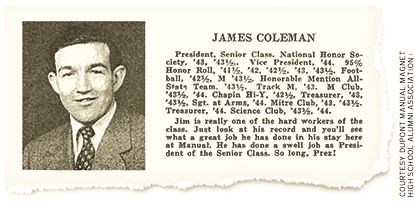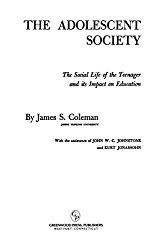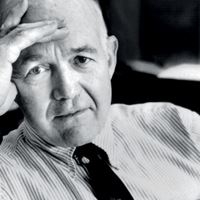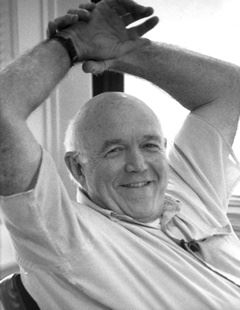Protests abounded, controversies ignited, and history would be changed forever. The American civil rights movement was the catalyst for the crumbling of racial segregation across all levels of society, and was one of the most prolific periods of heroism in American history. In this revolutionary time, there were countless heroes, from local neighborhoods to national television, who fought for what they believed was right and did not accept the societal expectations placed upon them. What makes them worthy of study today, however, is their impact in the fields they strived to change. Heroism has been interpreted and reinterpreted in many ways throughout history, with both positive and malicious intent. In turn, the heroism of many people is constantly being ignored, questioned, upheld, or worshipped, depending on the circumstances at the time. However, regardless of the tides of history, what truly makes a hero is their long-lasting impact on the future. No matter how one is interpreted at the time of their actions, their true impact and most fulfilling interpretation of their doings emerges in the years when they are long retired, dead, or nonexistent. Heroism of an individual in the present does not necessarily mean that they will continue to be regarded as such in the future; rather, it only increases the likelihood that one could be recognized as such in the future. Boldness and moral acumen in an individual who has made a notable impact in the present make an individual a hero.
 Coleman's graduation picture from duPont Manual High School, in 1944.duPont Manual Magnet High School, Alumni AssociationThere are few people who truly display the traits of boldness and moral acumen more than the sociologist James S. Coleman. Coleman was born May 12, 1926, in the small city of Bedford, Indiana. After high school graduation, he briefly enrolled in a small Virginian school, but instead, he went off to become a sailor in the US Navy during World War II. Afterwards, he attained a bachelor’s degree in chemical engineering in 1949 from Purdue University, but in wanting to truly change society, he decided to continue graduate studies in sociology at Columbia University. In the years after his education, he made major advances in both the sciences of sociology of education and mathematical sociology. A hero needs to adopt strong initiative and morals to be recognized for their heroic actions long after they have occurred, and Coleman has clearly displayed these traits in his remarkable advances in sociology and his unwavering resilience against those who opposed his studies. James S. Coleman’s bold theories and moral acumen in his research of the sociology of education and the influences his research have had in the present make him worthy of the title hero.
Coleman's graduation picture from duPont Manual High School, in 1944.duPont Manual Magnet High School, Alumni AssociationThere are few people who truly display the traits of boldness and moral acumen more than the sociologist James S. Coleman. Coleman was born May 12, 1926, in the small city of Bedford, Indiana. After high school graduation, he briefly enrolled in a small Virginian school, but instead, he went off to become a sailor in the US Navy during World War II. Afterwards, he attained a bachelor’s degree in chemical engineering in 1949 from Purdue University, but in wanting to truly change society, he decided to continue graduate studies in sociology at Columbia University. In the years after his education, he made major advances in both the sciences of sociology of education and mathematical sociology. A hero needs to adopt strong initiative and morals to be recognized for their heroic actions long after they have occurred, and Coleman has clearly displayed these traits in his remarkable advances in sociology and his unwavering resilience against those who opposed his studies. James S. Coleman’s bold theories and moral acumen in his research of the sociology of education and the influences his research have had in the present make him worthy of the title hero.
 The Adolescent Society by James S. ColemanAmazonAdvancing the sociology of education in terms of comparative demographics and quality, Coleman is a hero as he pushed bold theories on adolescents’ sociology in schools to explain racial divides in education. One example of a major theory that Coleman proposed was his unheard-of premise that the equality of opportunity is by equality of output, not input, despite the risks of claiming such in research at the time. In effect, he unconventionally studied the results of schools in various areas to judge whether they had similar opportunity, not the supplies and resources being poured into schools. Coleman led a group of researchers in what is now known as the Coleman Report, which “began with the controversial and innovative premise that equality of opportunity should be assessed by equality of outcome rather than equality of input.” (Thompson 193) Coleman took a risk in beginning such a crucial study regarding educational opportunity with a premise that had not been regarded before in previous studies by sociologists. Coleman shows that he is a hero by having the wit to commit to a bold premise that would ultimately change the direction of both sociological studies and education. Without having been so bold, he would not have been known for this landmark study. Another example where Coleman clearly showed that he was a hero was when he called out the courts regarding their misinterpretation of his study. For instance: “The [Coleman] report offered no policy recommendations, though it was used in the courts to support arguments for racial balancing. Coleman complained that the courts used the report inappropriately..." (Otto par. 1) Coleman was clearly unhappy about the courts’ interpretation of his report, and voiced this discontent in public, even though he could have faced public backlash. Coleman can be shown in this instance to be a hero as he stood up for what he thought was right and made the bold decision to vote his opposition to the courts’ decision. In spite of the opposition he faced from the public as a result of constant and consistent misinterpretation of his objective, scientific results regarded as in favor of various fronts, Coleman continued to persevere in his field and made significant achievements that would have been impossible without his values.
The Adolescent Society by James S. ColemanAmazonAdvancing the sociology of education in terms of comparative demographics and quality, Coleman is a hero as he pushed bold theories on adolescents’ sociology in schools to explain racial divides in education. One example of a major theory that Coleman proposed was his unheard-of premise that the equality of opportunity is by equality of output, not input, despite the risks of claiming such in research at the time. In effect, he unconventionally studied the results of schools in various areas to judge whether they had similar opportunity, not the supplies and resources being poured into schools. Coleman led a group of researchers in what is now known as the Coleman Report, which “began with the controversial and innovative premise that equality of opportunity should be assessed by equality of outcome rather than equality of input.” (Thompson 193) Coleman took a risk in beginning such a crucial study regarding educational opportunity with a premise that had not been regarded before in previous studies by sociologists. Coleman shows that he is a hero by having the wit to commit to a bold premise that would ultimately change the direction of both sociological studies and education. Without having been so bold, he would not have been known for this landmark study. Another example where Coleman clearly showed that he was a hero was when he called out the courts regarding their misinterpretation of his study. For instance: “The [Coleman] report offered no policy recommendations, though it was used in the courts to support arguments for racial balancing. Coleman complained that the courts used the report inappropriately..." (Otto par. 1) Coleman was clearly unhappy about the courts’ interpretation of his report, and voiced this discontent in public, even though he could have faced public backlash. Coleman can be shown in this instance to be a hero as he stood up for what he thought was right and made the bold decision to vote his opposition to the courts’ decision. In spite of the opposition he faced from the public as a result of constant and consistent misinterpretation of his objective, scientific results regarded as in favor of various fronts, Coleman continued to persevere in his field and made significant achievements that would have been impossible without his values.
 Coleman, in old age.EducationNextAnother major part of Coleman’s heroism is his moral acumen, which fueled his strength and ability to continue in his field regardless of public thought. One example where Coleman displays his moral acumen is when he describes his thoughts concerning normative, or traditional & small, communities, and how they result in many negative values: "As anyone who was raised in a small close community knows, normative systems have many unpleasant aspects: They operate more via constraints [sic] and coercion than via incentives and rewards. They are inegalitarian, giving those with most power in the community freedoms that are denied others. They discriminate, particularly against the young, enforcing norms that are in the interests of elders; they inhibit innovation and creativity; they bring a greyness to tlife [sic] that dampens hope and aspiration." (Coleman 10) Coleman clearly shows how his personal moral values affect his view of certain societies with oppressive societies - in general, he shows his caring qualities about the individuals in the society, not just for the society itself. In his caring for the actual people behind normative societies due to their negative nature, Coleman displays his moral acumen in identifying the qualities of such societies and judging them based on the well-being they provide to their parts. Another example of Coleman showing his moral acumen was when he had made claims concerning families that were highly controversial: "[Coleman] ...argued that the wide achievement gap between White and Black students was the product of family differences. It declared that if the goal was to improve the academic achievement of all pupils, then a socioeconomic mix of students is more crucial than changing the racial composition of the school population." ("Op-Ed: Looking Back on the 50th Anniversary of the Coleman Report.”)Coleman’s bold and unexpected conclusion that racial integration did little to boost academic achievement in urban schools was characterized as “seismic” by Daniel Patrick Moynihan, then the Assistant Secretary of Labor in President Lyndon Johnson’s Administration, which had championed desegregation as the solution to education inequality.” Coleman’s conclusion displays his moral acumen as even though his ideas were controversial at the time, they promoted better education for all, and with scientific objectivity, made the best conclusions for students. Coleman, despite oppression from the press and public, managed to accomplish in sociology with moral acumen.
Coleman, in old age.EducationNextAnother major part of Coleman’s heroism is his moral acumen, which fueled his strength and ability to continue in his field regardless of public thought. One example where Coleman displays his moral acumen is when he describes his thoughts concerning normative, or traditional & small, communities, and how they result in many negative values: "As anyone who was raised in a small close community knows, normative systems have many unpleasant aspects: They operate more via constraints [sic] and coercion than via incentives and rewards. They are inegalitarian, giving those with most power in the community freedoms that are denied others. They discriminate, particularly against the young, enforcing norms that are in the interests of elders; they inhibit innovation and creativity; they bring a greyness to tlife [sic] that dampens hope and aspiration." (Coleman 10) Coleman clearly shows how his personal moral values affect his view of certain societies with oppressive societies - in general, he shows his caring qualities about the individuals in the society, not just for the society itself. In his caring for the actual people behind normative societies due to their negative nature, Coleman displays his moral acumen in identifying the qualities of such societies and judging them based on the well-being they provide to their parts. Another example of Coleman showing his moral acumen was when he had made claims concerning families that were highly controversial: "[Coleman] ...argued that the wide achievement gap between White and Black students was the product of family differences. It declared that if the goal was to improve the academic achievement of all pupils, then a socioeconomic mix of students is more crucial than changing the racial composition of the school population." ("Op-Ed: Looking Back on the 50th Anniversary of the Coleman Report.”)Coleman’s bold and unexpected conclusion that racial integration did little to boost academic achievement in urban schools was characterized as “seismic” by Daniel Patrick Moynihan, then the Assistant Secretary of Labor in President Lyndon Johnson’s Administration, which had championed desegregation as the solution to education inequality.” Coleman’s conclusion displays his moral acumen as even though his ideas were controversial at the time, they promoted better education for all, and with scientific objectivity, made the best conclusions for students. Coleman, despite oppression from the press and public, managed to accomplish in sociology with moral acumen.
 Coleman, happy, in old ageEducationNextThe bold theories and moral acumen of James S. Coleman in his advancement of the sociology of education and mathematical sociology have made an impact on the present day long after their time. Coleman has made extensive discoveries that have benefited the direction of both education and sociology, and he was fueled by his determination to find a better way to teach adolescents: “If we refuse to accept as inevitable the irresponsibility and educational unconcern of the adolescent culture, then this poses a serious challenge.” (Coleman) Though Coleman had to stand out from the general population to advance a better view for education, he still cared for the well-being of his research subjects. James S. Coleman inspires me as in the face of his opponents, he never strayed from his goal of scientific objectivity and a solution to create equality of opportunity for all. Even though he had faced opposition by the masses who supported discrimination and segregation, Coleman had the heart to go and ensure that the morals that he had were met, and that all adolescents, no matter their condition, would be able to accomplish their best in their educational settings. In his pursuit of a higher standard, Coleman has made it clear to me that regardless of others’ backlash, I can always accomplish my goals. With the Coleman Report, Coleman has made a large impact on the quality of education and the civil rights of minorities, regardless of their race, family origin, or location. Only with his amazing discoveries are we able to have the widespread racial integration that exists today.
Coleman, happy, in old ageEducationNextThe bold theories and moral acumen of James S. Coleman in his advancement of the sociology of education and mathematical sociology have made an impact on the present day long after their time. Coleman has made extensive discoveries that have benefited the direction of both education and sociology, and he was fueled by his determination to find a better way to teach adolescents: “If we refuse to accept as inevitable the irresponsibility and educational unconcern of the adolescent culture, then this poses a serious challenge.” (Coleman) Though Coleman had to stand out from the general population to advance a better view for education, he still cared for the well-being of his research subjects. James S. Coleman inspires me as in the face of his opponents, he never strayed from his goal of scientific objectivity and a solution to create equality of opportunity for all. Even though he had faced opposition by the masses who supported discrimination and segregation, Coleman had the heart to go and ensure that the morals that he had were met, and that all adolescents, no matter their condition, would be able to accomplish their best in their educational settings. In his pursuit of a higher standard, Coleman has made it clear to me that regardless of others’ backlash, I can always accomplish my goals. With the Coleman Report, Coleman has made a large impact on the quality of education and the civil rights of minorities, regardless of their race, family origin, or location. Only with his amazing discoveries are we able to have the widespread racial integration that exists today.
Works Consulted
Coleman, James S. “The Rational Reconstruction of Society: 1992 Presidential Address.” American Sociological Review, vol. 58, no. 1, Feb. 1993, p. 1., doi:10.2307/2096213.
COOPER, BRUCE S., and TIMOTHY S. VALENTINE. "Coleman, James S. (1926–1995)." Encyclopedia of Education, edited by James W. Guthrie, 2nd ed., vol. 1, Macmillan Reference USA, 2003, pp. 324-327. Opposing Viewpoints In Context, http://link.galegroup.com/apps/doc/CX3403200120/OVIC?u=powa9245&sid=OVIC&xid=e1ea14ab. Accessed 16 Apr. 2018.
Kiviat, Barbara J. “The Social Side of Schooling.” Johns Hopkins Magazine -- April 2000, John Hopkins Magazine, Apr. 2000, pages.jh.edu/jhumag/0400web/18.html.
Op-Ed: Looking Back on the 50th Anniversary of the Coleman Report.” Op-Ed: Looking Back on the 50th Anniversary of the Coleman Report | Annenberg Institute for School Reform, Brown University, 1 Sept. 2016, www.annenberginstitute.org/blog/op-ed-looking-back-50th-anniversary-coleman-report.
Otto, Luther B. "Public and private high schools; the impact of communities." Science, vol. 237, 1987, p. 1357+. Biography In Context, http://link.galegroup.com/apps/doc/A5216317/BIC?u=powa9245&sid=BIC&xid=3e381aae. Accessed 18 Apr. 2018.
Thompson, Marie L. "James Coleman." The Scribner Encyclopedia of American Lives, Thematic Series: The 1960s, edited by William L. O'Neill and Kenneth T. Jackson, Charles Scribner's Sons, 2003. Biography In Context, http://link.galegroup.com/apps/doc/K3436600117/BIC?u=powa9245&sid=BIC&xid=dac973d3. Accessed 17 Apr. 2018.
Page created on 5/31/2018 2:22:18 AM
Last edited 6/2/2018 1:54:32 PM
